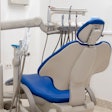
The U.S. Food and Drug Administration (FDA) has issued a draft guidance describing its intent to exercise enforcement discretion with respect to the premarket notification requirements for certain in vitro diagnostic and radiology devices with well-established safety and effectiveness profiles.
The draft guidance lists 30 different device types identified by the FDA as those for which less stringent oversight would not compromise public health. These products include common urine and blood tests, alcohol breath tests, blood clotting protein tests, and radiology device accessories, such as film cassettes, film processors, digitizers, and collimators, including some specific to dentistry. The FDA intends to exempt these devices from premarket notification requirements through the appropriate regulatory processes.
"The safety and effectiveness of these devices have been well demonstrated over the years," said Jeffrey Shuren, MD, director of FDA's Center for Devices and Radiological Health. "By addressing the risk level of these devices, the agency is taking a smart regulatory approach that eases unnecessary requirements for manufacturers, while making sure the public has safe and effective devices."
In the future, the FDA also intends to reduce the premarket regulatory burden on additional in vitro diagnostic and radiology device types. In the meantime, the agency said it does not intend to enforce the premarket notification requirements with respect to these devices, provided that they do not exceed the limitations on exemption specified in the device classification regulations.
"FDA has identified certain class I and class II in vitro diagnostic (IVD) and radiology devices that have established safety and effectiveness profiles and for which it believes 510(k) review is not necessary to assure safety and effectiveness," the draft guidance states. "While FDA intends to exempt these devices from the 510(k) requirement through rulemaking that would reclassify the class II devices and amend the classification regulations of the class I devices, FDA no longer believes it is necessary to review premarket notification (510(k)) submissions for these devices before they enter the market and intends to exercise enforcement discretion for these devices concerning the 510(k) requirement."
The FDA does intend to continue to enforce all other applicable requirements, including registration and listing and Good Manufacturing Practices as set forth in the Quality System regulations.
The agency is seeking further comment on the draft guidance from manufacturing, clinical, and patient communities. The draft guidance is open for comment for 90 days.



















